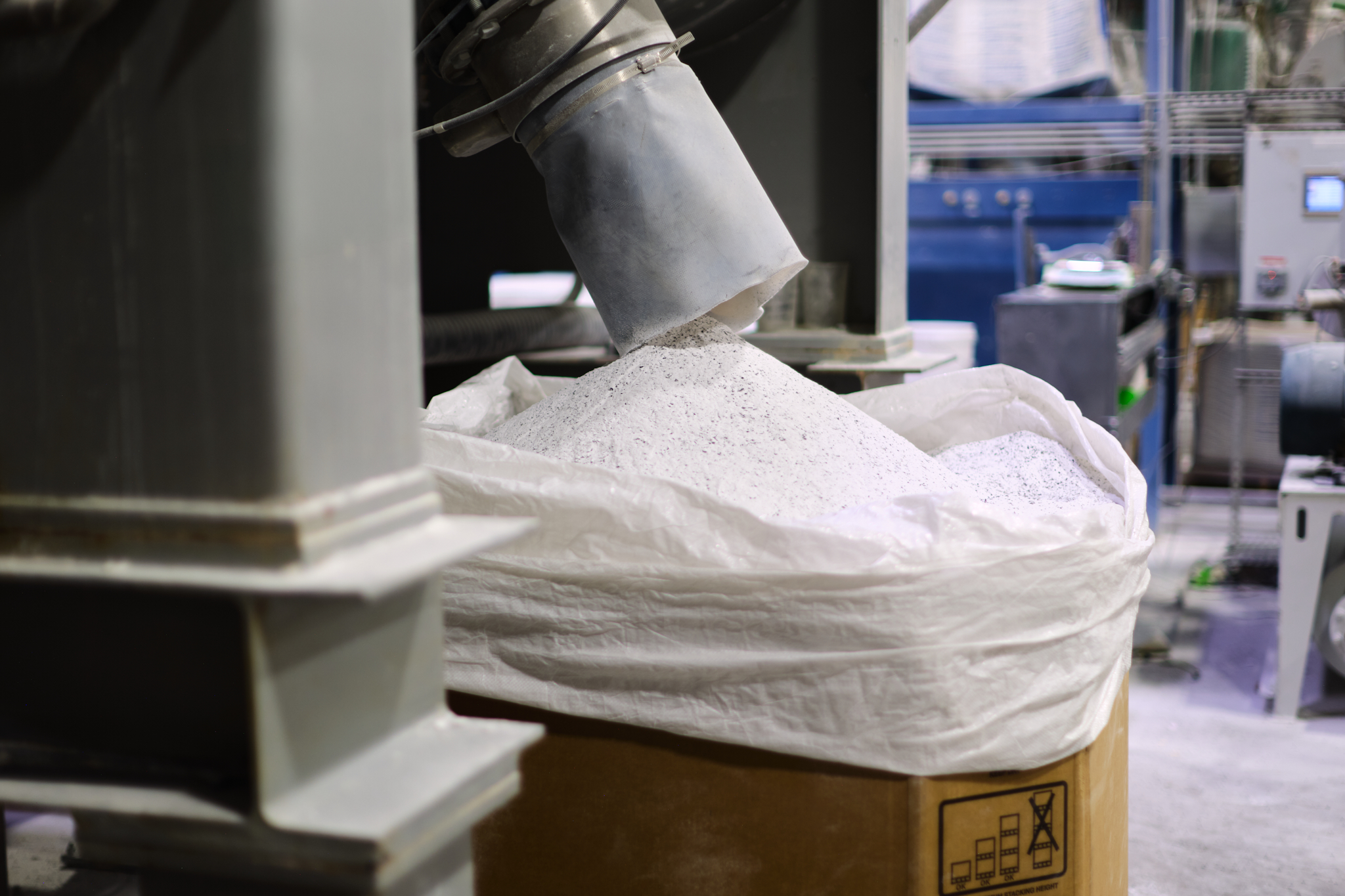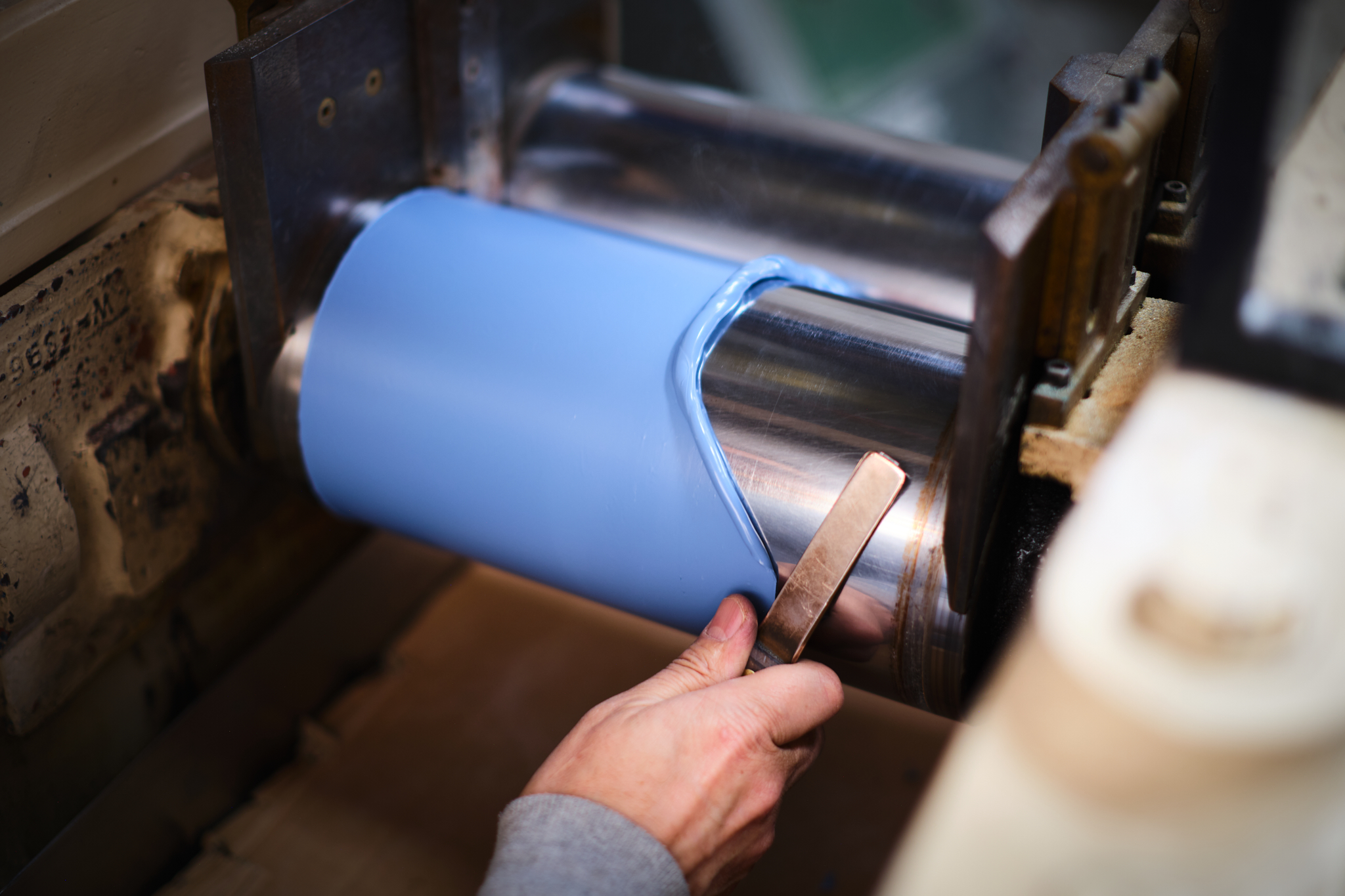
Polyvinyl chloride (PVC) is a high-strength synthetic polymer and one of the most widely used thermoplastics globally. Around 50 million tons are produced worldwide each year. This highly versatile material is used in applications ranging from pipes and packaging to vinyl flooring, automotive parts, window frames, and clothing.
PVC starts out as a raw, powdered material called PVC resin. PVC resin comes in many different grades and types, including homopolymers and copolymers, and needs to be blended with additives to enhance their characteristics. It is essential for manufacturers to select the best kind and blend for their specific performance, regulatory, and processing needs.
In this post, we will explore the various types and grades of PVC resin to help you choose the best one for your application.
What is Polyvinyl Chloride (PVC) Resin?
Polyvinyl chloride resin, or PVC resin, is the raw form of PVC, a synthetic plastic polymer derived from chlorine and ethylene. It is a white and brittle plastic material that needs to be combined with various additives to form a compound that enhances its specific processing and end-use properties.
Thanks to its durable, lightweight, flame-resistant, and chemically stable properties, PVC is utilized across numerous industries. Rigid (uPVC) and flexible PVC have different use cases; for example, rigid PVC is used for water and sewage pipes, window profiles, home siding, and plumbing fixtures and fittings, while its flexible counterpart is ideal for wire and cable sheathing, vinyl flooring, inflatable boats, technical textiles, roofing membranes, automotive interiors, and more.
Common Grades of PVC Resin
Polyvinyl chloride resins come in numerous grades, each with unique properties and ideal applications. In this section, we will examine some of the most common types and grades of PVC resin and their use cases.
Suspension PVC (S-PVC)
Suspension PVC, or S-PVC, is the most widely used type. It is manufactured through suspension polymerization, a technique in which monomer droplets are dispersed in a liquid phase (usually water) and then polymerized.
S-PVC is a versatile material suitable for both flexible and rigid applications. Common applications of S-PVC include pipes, window profiles, wires and cables, and flexible pool liners. It is available in various K-values or molecular weight indicators.
Emulsion PVC (Paste Resin)
Emulsion PVC, also known as paste resin, is a fine-particle PVC resin used for specialty applications. It has excellent surface quality and flexibility and is produced using an emulsion polymerization process, which results in small particle sizes. When compounded with plasticizers, pastes and liquid plastisols are created.
Paste PVC resin is ideal for knife and slush coating applications such as synthetic leather, vinyl flooring, and boat fenders.
Copolymer PVC
Copolymer PVC resin is created when a vinyl chloride monomer is blended with a second monomer (such as vinyl acetate) to enhance flexibility, chemical resistance, or other desirable attributes.
Copolymer PVC is often used in applications requiring better impact strength or softness. Some common uses for copolymer PVC resins are credit cards, flooring materials, and coatings such as automotive sealants. A common use for copolymers is in heavily filled applications in which heavy loadings of calcium carbonate may be required such as mass loaded vinyl (MLV).
How Does K-Value (Molecular Weight) Impact PVC Resin Grades?
The K-value determines a material’s molecular weight. A higher K-value means a higher molecular weight, which generally indicates that PVC will offer better strength and physical properties but also takes more energy to process. Another way resin manufacturers determine viscosity is through a process and term called Relative Viscosity or RV. K-value corresponds with RV in that the higher the RV, the higher the K Value will be. You will notice that on our resin equivalency chart, we list both values.
Choosing the Right PVC Plastic Materials for Your Application
By now, you may know the kind of PVC resin you will need for your application. In this section, we will explore some of the most common applications for PVC and the resin grades that would be most suitable for them.
Rigid vs. Flexible Applications
Suspension PVC with a K-value of K57-K65 is most frequently used for rigid roducts such as pipes, windows, doors, and siding. The PVC must have high tensile strength and excellent weather resistance.
Resins with a lower K-Value generally do not absorb plasticizer well and are generally not suitable for flexible applications. In resin with a K-Value of 66 or above, the ease of plasticizer absorption also increases. Higher K-Value resins are more used in flexible applications for this reason.
Lower K-Values require lower processing temperatures and allow for quick and easy melting. Higher K-Value resins, on the other hand, will require more work and generally higher melt temperatures.
Types of Processing

Which PVC resin is best for various products ultimately depends on the type of processing that it will undergo. The four main types of PVC processing are injection moulding, extrusion, calendaring, and coating.
Injection moulding, calendaring, and extrusion always utilize suspension resin, whereas knife coating uses emulsion resin.
Factors to Consider Beyond Resin Type
In addition to choosing the correct resin type, here are a few additional factors manufacturers may wish to consider when selecting PVC and other materials for their processes.
Processing Method
Plastic products are manufactured in several different ways. Extrusion, injection molding, and calendaring are some of the most common.
For example, injection molding is ideal for creating complex items with high precision, such as medical devices, fittings, and automotive parts. At the same time, extrusion is best for efficiently creating uniform pieces, such as pipes, windows, and siding. Calendaring is a process specifically for making plastic film and sheets.
Regulatory Compliance
Numerous regulatory and legal requirements govern the manufacturing of both industrial and consumer products.
For example, the Food and Drug Administration (FDA) regulates all medical devices in the US, while the National Sanitation Foundation (NSF) tests and certifies food, water, and consumer products.
In Europe, the Registration, Evaluation, Authorisation, and Restriction of Chemicals (REACH) and Restriction of Hazardous Substances (RoHS) regulations govern the supply and use of substances.
Manufacturers must ensure that their chosen materials meet the regulations in any locale where their products will be made, sold, and used.
Environmental Considerations
With increasing scrutiny on companies and consumer demand for more sustainable products and practices, manufacturers must consider the environmental impact of their materials and manufacturing processes.
Ronald Mark: Premium Resins for Every Application
With the right type and grade of PVC resin, manufacturers can ensure durability, efficiency, and regulatory compliance while maximizing product success.
Here at Ronald Mark, we understand the importance of selecting the correct PVC grade based on your application’s performance needs, regulatory compliance requirements, and processing methods. As leading suppliers of PVC resins, including specialty resins, since the 1970s, we are ideally situated to help you find the perfect grade or blend of material for your needs.We don’t just broker resins we use the many of the same resins in our flexible extrusion process
To learn more about any of our resins or request a quote, contact us today, and we will be pleased to advise you.
related posts
February 20, 2025
A recreational vehicle, or RV, is a type of home on wheels. [...]
January 16, 2025
Polyvinyl chloride (PVC) is a high-strength synthetic polymer and one of the [...]
December 18, 2024
Polyvinyl chloride (PVC) is a synthetic thermoplastic polymer that is used extensively [...]



